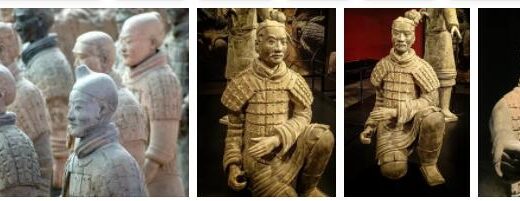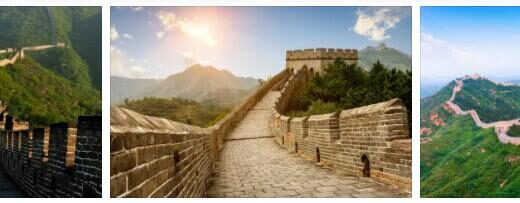History Timeline of Yiwu, China
Yiwu, a city in Zhejiang Province, China, has a rich and multifaceted history that spans centuries. From its early days as a trading center to its modern status as a global hub for small commodities, Yiwu’s history reflects the resilience, adaptability, and entrepreneurial spirit of its people. In this comprehensive historical timeline, we will delve into key milestones and events that have shaped Yiwu into the vibrant and dynamic city it is today.
Ancient Roots:
- Neolithic Period (7000-5000 BCE): According to act-test-centers.com, archaeological evidence suggests human habitation in the Yiwu region during the Neolithic period. Early communities engaged in agriculture and pottery-making, laying the foundation for settled life in the area.
- Han Dynasty (206 BCE – 220 CE): Yiwu’s historical records date back to the Han Dynasty, during which it was known as Wushang County. The region’s agricultural productivity and strategic location along trade routes contributed to its early economic significance.
Medieval Era:
- Tang Dynasty (618-907): Yiwu continued to thrive as a regional center for trade and commerce. The development of the Grand Canal during the Tang Dynasty enhanced connectivity and facilitated the transportation of goods.
- Song Dynasty (960-1279): Yiwu’s commercial importance grew during the Song Dynasty, and it became known as Yiwu County. The city’s markets and trading activities laid the groundwork for its future prominence in the business world.
Ming and Qing Dynasties:
- Ming Dynasty (1368-1644): Yiwu’s economic landscape flourished further during the Ming Dynasty. The city became a significant center for the production and trade of tea, silk, and handicrafts.
- Qing Dynasty (1644-1912): Yiwu continued to prosper under the Qing Dynasty. The establishment of markets and the development of trade routes contributed to the city’s growth as a key trading hub in southern China.
Modernization and Challenges:
- Late 19th Century: Yiwu faced challenges during the late 19th century, marked by social and political unrest. The city’s resilience allowed it to weather the storm and adapt to changing circumstances.
- Early 20th Century: Yiwu’s economy rebounded, with renewed focus on trade and commerce. The city maintained its status as a regional marketplace, attracting merchants and traders from various parts of China.
Post-1949 and Reform Era:
- 1949-1978: The establishment of the People’s Republic of China in 1949 marked a new chapter for Yiwu. The city underwent changes in governance and economic policies, aligning with the broader shifts in the nation.
- 1978: With the implementation of Deng Xiaoping’s economic reforms, Yiwu experienced a transformative period. The government’s policies aimed at opening up the economy and encouraging entrepreneurship had a profound impact on the city’s development.
- 1982: Yiwu was designated as a county-level city in 1982, reflecting its growing importance. The city’s markets, especially the Yiwu International Trade Market, gained prominence as a global trading hub for small commodities.
Yiwu International Trade Market:
- 1982-Present: The opening of the Yiwu International Trade Market marked a turning point in the city’s economic trajectory. As one of the world’s largest wholesale markets, it attracts buyers and sellers from around the globe. The market’s success has been a driving force behind Yiwu’s economic boom.
21st Century and Globalization:
- 2000s: Yiwu’s economy continued to diversify, with a focus on small commodities, textiles, and manufacturing. The city’s global outreach expanded, establishing it as a vital player in the international trade landscape.
- Belt and Road Initiative: Yiwu actively participates in the Belt and Road Initiative, China’s ambitious project to enhance global connectivity. The city’s strategic location and robust logistics infrastructure contribute to its role as a key player in this initiative.
E-commerce and Innovation:
- Early 2000s: Yiwu embraced the rise of e-commerce platforms, further expanding its reach to global markets. The integration of technology and innovation in trade has positioned Yiwu as a leader in adapting to the evolving landscape of international commerce.
- Yiwu Digital Economy: The city has made significant strides in developing its digital economy, leveraging technology to enhance efficiency in trade and logistics. E-commerce platforms based in Yiwu have facilitated direct connections between manufacturers and consumers worldwide.
Yiwu’s history is a testament to its ability to adapt, innovate, and thrive in the face of challenges and changes. From its early days as a regional trading center to its current status as a global marketplace for small commodities, Yiwu has remained resilient and forward-looking. As the city continues to play a pivotal role in international trade and economic development, its rich history serves as a foundation for future growth and prosperity. Yiwu’s journey reflects the dynamic spirit of China’s economic transformation, making it a fascinating example of historical continuity and modern adaptation.


